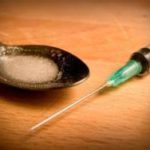If you read my blog you know that I try to post smooth, polished pieces. I try to produce something coherent, even conclusive. This one’s different: a bunch of notes that I recently found in a forgotten file from five years ago. The notes pose questions that intrigue and trouble me as much now as they did back then. I don’t even remember writing this stuff. Probably much of it landed in previous posts and articles. But anyway, here are the questions. Still without clear answers.
I’ve annotated the text and filled in a few spots that would be completely incomprehensible otherwise. I’ve also added tips to more recent work and inserted several links. But the text I started with remains relevant, at least to me. Things don’t change very fast, and I think these are hard questions.
……………
 My drug use began with psychedelics. Then came heroin. They’ve always seemed like diametrical opposites. This is where I get my intuitive feel for
My drug use began with psychedelics. Then came heroin. They’ve always seemed like diametrical opposites. This is where I get my intuitive feel for  whether drugs are good or bad. Psychedelics open you up, heroin shuts you down. But I dropped acid roughly 300 times in my late teens and early twenties. I shot heroin about 30-40 times. Why do l assume that heroin is addictive and LSD is pure sunshine?
whether drugs are good or bad. Psychedelics open you up, heroin shuts you down. But I dropped acid roughly 300 times in my late teens and early twenties. I shot heroin about 30-40 times. Why do l assume that heroin is addictive and LSD is pure sunshine?
The one wedge nearly everyone agrees on is whether a drug is addictive or not. If only it were that simple. Is addictiveness really a feature of the drug? Or a feature of the person and the social surround (Rat Park)? When you take the addict as the unit of analysis, you place him in a cage, and then analyze his interaction with this or that drug. How stupid. How is it that scientists and doctors have become the priests of such stark distinctions?
The boiled-down argument re drugs and addiction: think about Percy Menzies [see his guest-post here] and the idea of chemical hooks (in Percy’s view, the only real cure for heroin addiction is OST, opiate substitution therapy, and he especially likes naltrexone: kill the good feeling and they’ll stop). [The idea of opiates as chemical hooks is also pitched in Dreamland, by Sam Quinones.] Then along comes Carl Hart (High Price) who says “addiction” is just a label used to badmouth drugs, and our only responsibility is to educate drug users. [In his new book, Drug Use for Grown-ups, Hart argues that all drugs, including heroin, can be taken recreationally, and it’s repressive for governments to ban any drug for personal use by normal, sane adults.] And along comes Johann Hari (Chasing the Scream), who says that the opposite of addiction isn’t sobriety, it’s human connection. All very liberating. But what about addiction?
Addictive drugs: are they neurochemically distinct? Do addictive drugs mimic natural neuromodulation (opioids, dopamine, etc)….vs nonaddictive drugs (like LSD, psilocybin?) that effect perspective  change? [But let me add this: last year I went to a neuroscience conference and learned that baby zebrafish will swim toward water laced with Vicodan, an opiate painkiller. I doubt they’d swim toward an LSD solution.] Mind-altering vs. mood-enhancing. Is that what decides? (Though SSRIs are mood-enhancing…and guess what, they’re addictive…sort of.) But behavioural addictions are just as serious, aren’t they? (Gambling addicts can destroy their lives as effectively as any crack-head) Can behaviour also be divided into mood-enhancing vs mind-altering? Probably not. Maybe there are just good and bad addictions…in life, love, and drugs. Oh, and in products. Where do we stop?
change? [But let me add this: last year I went to a neuroscience conference and learned that baby zebrafish will swim toward water laced with Vicodan, an opiate painkiller. I doubt they’d swim toward an LSD solution.] Mind-altering vs. mood-enhancing. Is that what decides? (Though SSRIs are mood-enhancing…and guess what, they’re addictive…sort of.) But behavioural addictions are just as serious, aren’t they? (Gambling addicts can destroy their lives as effectively as any crack-head) Can behaviour also be divided into mood-enhancing vs mind-altering? Probably not. Maybe there are just good and bad addictions…in life, love, and drugs. Oh, and in products. Where do we stop?
 Why do we value control so much? Is control the wedge? Or is harm the crucial marker? Control vs harm and the history of antipsychotics…that increase control and kill the soul. Drugs that harm: don’t they require harm reduction? Or is it happiness, well-being, that’s key? Then why prescribe SSRIs when you could prescribe opiates for emotional pain? If you value control, then get this: drugs are a way to control our thoughts and feelings. Yet self-medication often leads to self-harm. How do we weigh the goodness of drugs when control, well-being, creativity, awareness and harm are all simultaneously changing variables?
Why do we value control so much? Is control the wedge? Or is harm the crucial marker? Control vs harm and the history of antipsychotics…that increase control and kill the soul. Drugs that harm: don’t they require harm reduction? Or is it happiness, well-being, that’s key? Then why prescribe SSRIs when you could prescribe opiates for emotional pain? If you value control, then get this: drugs are a way to control our thoughts and feelings. Yet self-medication often leads to self-harm. How do we weigh the goodness of drugs when control, well-being, creativity, awareness and harm are all simultaneously changing variables?
Drugs and therapeutics…. Psilocybin vs. depression and anxiety. If that’s okay, why not prescribe opiates for those who crave them? The duplicity built into psychiatry: we want what’s best for you. Oh really?
Patches to move us from moralism to relativism:
Individual differences — genetics are the simplest exemplar, but different life experiences matter hugely. Trauma leads to drug-use, not the reverse. Yet, the research shows that kids who never try drugs do worse than kids who do. How do we explain that?
Developmental differences — the wrong drug at the wrong age might become the right drug at the right age.
 Societal differences — my undergrads at Nijmegen [a rural region of the Netherlands] still see addicts as a different species; in Amsterdam students don’t see it like that. Let’s send Mr Hazelden to an ayahuasca ceremony and see how/whether he evolves.
Societal differences — my undergrads at Nijmegen [a rural region of the Netherlands] still see addicts as a different species; in Amsterdam students don’t see it like that. Let’s send Mr Hazelden to an ayahuasca ceremony and see how/whether he evolves.
…………………………
A sort of summary:
 Why would anyone put ayahuasca in the same category as heroin…isn’t there something intrinsically valuable about perspective change, for its own sake? And what’s the difference
Why would anyone put ayahuasca in the same category as heroin…isn’t there something intrinsically valuable about perspective change, for its own sake? And what’s the difference  between methadone and SSRIs when it comes to allaying depression (yet one is for disgusting addicts and the other is for normal healthy people, like Aunt Mary). But I so disagree with Carl Hart when he says that when your teenage kid wants to try meth your only duty (and your only right) is to educate him/her about safety issues. Are the distinctions between good and bad drugs in the drugs themselves (as we often think reflexively) or in the relation between the drug and the user? We have to really get individual differences. And developmental differences. Binge drinking at 16, not so good…social drinking at age
between methadone and SSRIs when it comes to allaying depression (yet one is for disgusting addicts and the other is for normal healthy people, like Aunt Mary). But I so disagree with Carl Hart when he says that when your teenage kid wants to try meth your only duty (and your only right) is to educate him/her about safety issues. Are the distinctions between good and bad drugs in the drugs themselves (as we often think reflexively) or in the relation between the drug and the user? We have to really get individual differences. And developmental differences. Binge drinking at 16, not so good…social drinking at age  28 can really help people connect. And what I learned from [my good friend and courageous colleague] Shaun Shelly: Isabel and I often reflect on his description of the unemployable/sidelined teens in Capetown smoking (not shooting) heroin…for social cohesion and a little pleasure. So, put it all together: look at the relationship between the person (of a certain age) and the drug, in the context of the social group and the society at large.
28 can really help people connect. And what I learned from [my good friend and courageous colleague] Shaun Shelly: Isabel and I often reflect on his description of the unemployable/sidelined teens in Capetown smoking (not shooting) heroin…for social cohesion and a little pleasure. So, put it all together: look at the relationship between the person (of a certain age) and the drug, in the context of the social group and the society at large.
Coda: What makes drugs bad? Is there something simple and primitive like the idea of being too attracted?
Conclusion: I don’t know.
………………………
A number of you posted very helpful comments about what you’d like to see in future posts. We’re working on it. Next, Eric Nada, a past contributor to the blog, will post a piece on psychedelic therapy for addiction. Given the above, I’m aware of possible ironies.

Leave a Reply to Percy Menzies Cancel reply